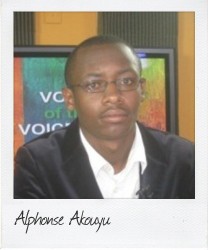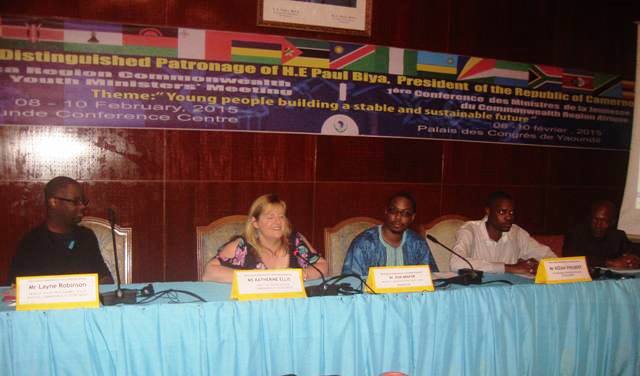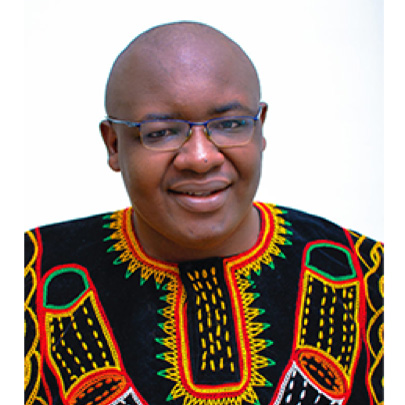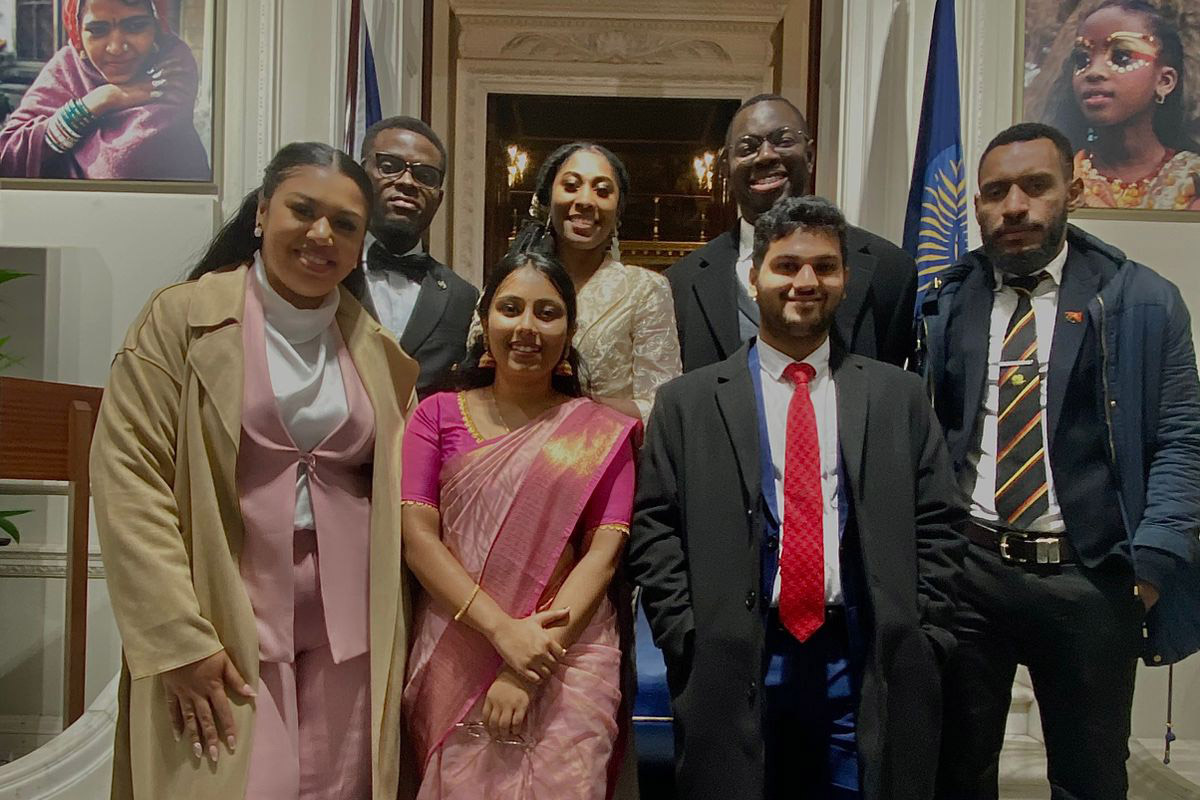"Youth join debate at Commonwealth Youth Forum"
February 9 Africa Region Commonwealth Youth Ministers are meeting in Yaounde to discuss the role of young people in development, and as Alphonse Akouyu, 20, a Commonwealth Correspondent from Bamenda in Cameroon who is covering the conference reports, youth are eager to participate.
Africa Region Commonwealth Youth Ministers are meeting in Yaounde to discuss the role of young people in development, and as Alphonse Akouyu, 20, a Commonwealth Correspondent from Bamenda in Cameroon who is covering the conference reports, youth are eager to participate.
The African Youth Leaders meeting has opened, and it opened with lots of debate and heat from young people, their representatives and policy makers. The time for action is now, and if the deliberations yesterday are anything to go by, then history is definitely in the making here in Yaoundé.
Cameroon’s National Youth Council President, Jean Marc Afesi Mbafor, chaired the opening sessions, where Katherine Ellis, Director of Commonwealth Youth Affairs, was the first speaker for the evening. She started by welcoming the young people to Cameroon and thanking the Cameroon government for accepting t0 host the meeting.
In a general overview of youth affairs within the Commonwealth, Katherine Ellis elaborated on the importance of the meeting with regard to the post-2015 development agenda, and outlined the position of the Commonwealth in relation to youth development. She called on young people to work together during the meeting to create good outcomes and establish a collaborative approach to youth affairs within the Commonwealth.
Only six out of the 169 targets in the post-2015 development agenda concern young people. To address this, she recommended that the forum should be used as a means to make strong calls to policymakers to make young people a priority in their development initiatives. Investment in young people and recognition of the important role they play in a changing society was another point highlighted by the director. Ms Ellis also recommended that young people make the most of the opportunity they would have to meet with the ministers to build partnerships.
Access to information is very important for development and sometimes without this, ideas on how to advance youth development are unable to grow within society. Katherine Ellis therefore called on young people to use the forum to communicate with the Commonwealth Youth Affairs Division staff in order to explain their needs and suggest ways the Commonwealth can best serve them. She noted that young people are future leaders of Africa and the role of the Youth Affairs Division is to be able to guide them in a quest to change society in a positive way.
In his presentation, Layne Robinson, Head of Youth Programmes in the Commonwealth Secretariat’s Youth Division, called on the young people to “own this meeting”. He classified a successful meeting as one that would end with a clear standpoint on what young people need to be to be able to succeed in their role in society, sharing priorities and coming together as leaders to act on a common agenda. He saw the meeting as a mid-term evaluation of the Papua New Guinea Youth Ministers meeting, which established a four-year plan for youth development within the Commonwealth. Layne Robinson advised young people to use the forum to earmark priority areas and design a future plan of action. Opportunities for meeting face-to-face with policy makers would be rare, and so he told them to use the forum wisely and give their best to their cause.
The last speaker, Kiziah Philbert, representative for Africa and Europe at the Commonwealth Youth Council (CYC), started by giving an overview of the structure and the facilities they offer and remarked that there is no equality in the two regions of Africa and Europe. The CYC represents about 1.2 billion young people, and according to him African Youths, who constitute a huge percentage, have been “neglected”. Mr. Kiziah Philbert underscored the importance of young people to keep calm and not rush in to leadership. He ended by calling on the youths to be united.
The moderator, Mr. Jean Marc, then gave room for delegates to remark about what the speakers said, and explained this was an introduction to what was going to happen during the official youth meeting.
Sarah Elago from Namibia made her remarks with lots of passion, and hammered the point that African Youths don’t simply make numbers and that they are not lazy. To her, there are too many meetings and too little implementation. Another delegate reinforced that point by saying, “we are singing too many songs but having very little impact”. Others addressed the policy makers by saying that they have too many agendas with no progress. Many criticized the fact that youths are neglected in these agendas. The remarks were suspended due to time contraints and postponed to the official meeting tomorrow.
The Africa Region Commonwealth Youth Ministers forum has the aim of ensuring that young people contribute to the safety and security of the future.
Photo: Alphonse Akouyu
…………………………………………………………………………………………………
About me:
Hello everyone this is your friend Akouyu Alphonse from Bamenda located in the North West Region of Cameroon. I’m currently in my last year in the Catholic University of Cameroon Bamenda studying Banking and Finance. I will be completing my studies in June of 2014 with the hope of becoming a Business/International Relations expert.
My areas of interest are serving as Journalist especially on Sports (football) and societal issues aimed at inspiring people to believe in themselves and volunteerism.
…………………………………………………………………………………………………
Opinions expressed in this article are those of the author and do not necessarily represent the views of the Commonwealth Youth Programme. Articles are published in a spirit of dialogue, respect and understanding. If you disagree, why not submit a response?
To learn more about becoming a Commonwealth Correspondent please visit:
http://www.yourcommonwealth.org/submit-articles/commonwealthcorrespondents/
…………………………………………………………………………………………………






